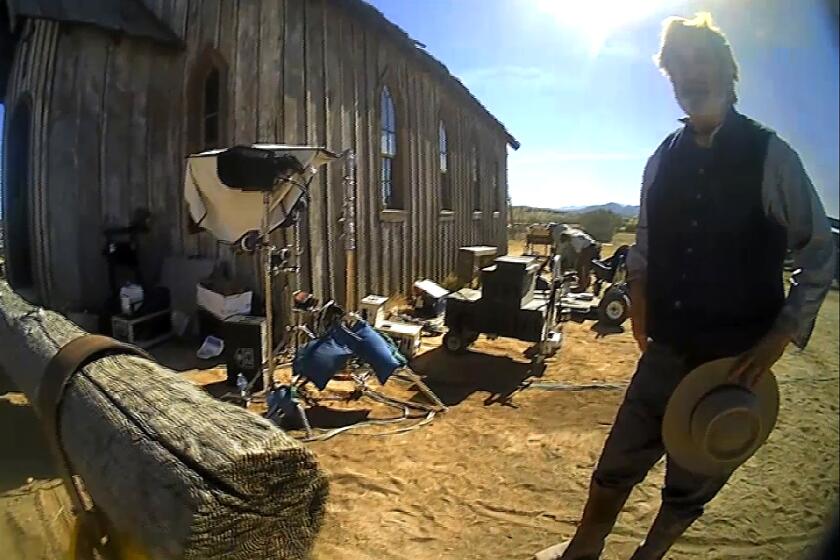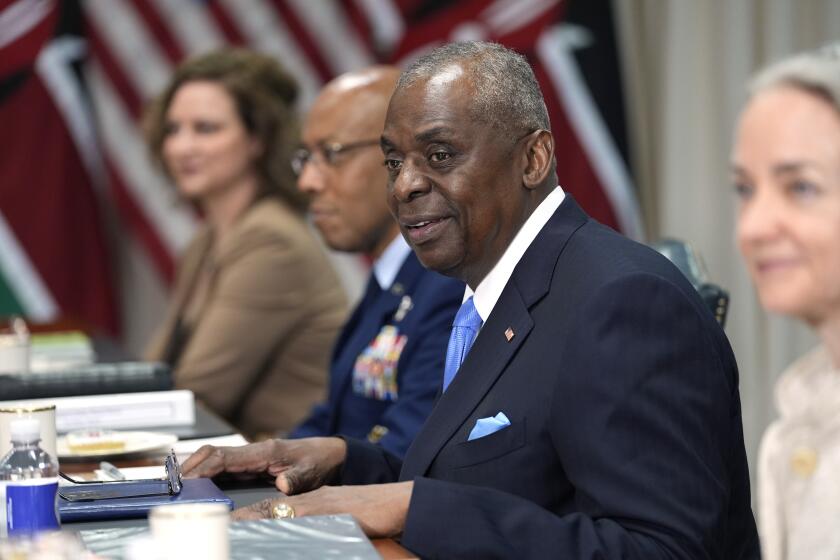U.S. Says No to Talks in Baghdad
The Bush administration has rejected an Iraqi invitation to Baghdad to discuss the fate of a missing Persian Gulf War pilot, instead sending a note signaling that U.S. officials might agree to meet if President Saddam Hussein’s government promised new information.
Defense Secretary Donald H. Rumsfeld wrote on Monday to Secretary of State Colin L. Powell, agreeing to the latter’s suggestion to turn down the offer made through the International Committee of the Red Cross in March and instead ask for fresh information on U.S. Navy Capt. Michael Scott Speicher.
The Pentagon had listed Speicher as the first American killed in action in Iraq during the 1991 war after another pilot saw a fireball in the direction of his plane, but it reclassified him as missing in action early last year following reports that he was being held captive. Iraqi officials have long insisted that he died in the crash of his F/A-18 Hornet.
“We are in touch through various means with the Iraqi government about the case,” Powell told reporters Thursday. “We are anxious to follow every possible lead with respect to the fate of ... Speicher, and we are following every possible lead.”
Administration policymakers do not believe that the Iraqis are serious about their offer to discuss Speicher--or any of the outstanding issues from the war, senior U.S. officials said Thursday.
Iraq has routinely failed to attend meetings of the Tripartite Committee, formed at the end of the conflict to deal with the issue of prisoners of war and MIAs. There are still more than 600 Kuwaitis unaccounted for after disappearing during Iraq’s seven-month occupation of their tiny oil-rich sheikdom, the issue that triggered the war.
“We’ve repeatedly given Iraq every opportunity to talk about those still unaccounted for from other nations, but it refuses to cooperate,” a State Department official said.
One reason for the cautious U.S. response is that the Iraqi offer came with conditions, such as the inclusion in the U.S. team of Scott Ritter, a former Marine and U.N. weapons inspector who has criticized U.S. policy in Iraq, said Marine Lt. Col. David Lapan, a Pentagon spokesman.
Iraq’s offer came after the case generated new leads suggesting that the flier remains alive in captivity. Sen. Pat Roberts (R-Kan.), on the Senate Intelligence Committee, said in February that the leads indicated Speicher “certainly did survive the crash.” He declined to elaborate.
In a potent symbol of U.S. doubts about Iraqi insistence that Speicher was killed, he was promoted from lieutenant commander to commander and then, last week, to captain, moves that would not have been possible if he were declared dead.
Before the recent reports, some Iraqi emigres told U.S. intelligence officials that a Navy flier fitting Speicher’s description was captured and held prisoner in Baghdad.
Among the intriguing reports suggesting that Speicher survived the crash is the tale of a flight suit found a short distance from the wrecked plane and spy satellite images of man-made designs--perhaps a signal for help--on the desert floor.
More to Read
Start your day right
Sign up for Essential California for news, features and recommendations from the L.A. Times and beyond in your inbox six days a week.
You may occasionally receive promotional content from the Los Angeles Times.






